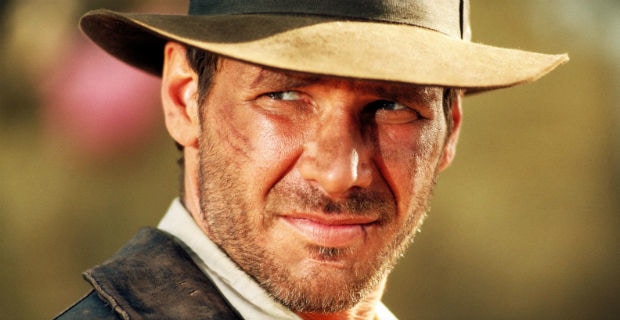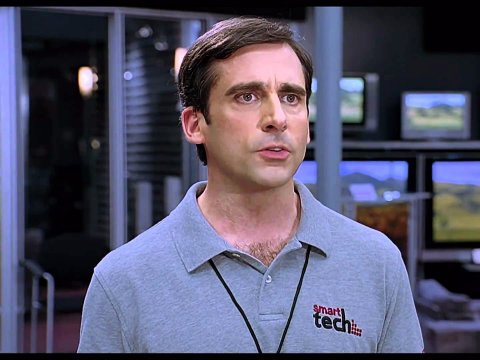“So, what do you want to be when you grow up?”
Ah, a question both timeless and pervasive. It follows you through elementary, middle and high school, and eagerly tags along to college, growing brighter and more urgent each day.
When you’re young, the question is fun; the possibilities are endless. I usually went with some combination of: an NBA player, a sneaker baron, or Lindsay Lohan’s official best friend (Parent Trap-era Lindsay Lohan, to be clear). My best friend yearned to be a psychiatrist when she grew up so she could “know everyone’s secrets.”
Also on Mediabistro


For many of us, the fun begins to diminish when college applications start. Now, the question is real. You need a “serious” response. A doctor is always a safe bet. These days, the ever-vague entrepreneur works too. I went with lawyer in my time, based on the rock-solid facts that my parent are both lawyers, and I liked to read. (Seriously, these were my reasons.)

Luckily, few colleges will even hold you to your intended major, let alone your 10-year plan. But once you get to campus, you start to make decisions that inevitably narrow your options. You choose prerequisites that will guide you to a certain major, you join clubs that expose you to certain types of people, you decide to do research over the summer – or take that unpaid social media marketing internship close to home. Whether deliberately or not, your path begins to take shape.
A bit of my own story…
When I was in college, I stayed on a fairly tracked path. I went all-in on that excellently-reasoned lawyer bet: majored in Political Science, spent my junior summer as an intern investigator for the D.C. public defender’s office, and headed off to a boutique law firm to work as a paralegal after college. Nothing to it, I thought. I have this job thing on lock.
There was just one problem. Turns out, I didn’t like the law very much. I found the environment inflexible and stifling, and the work overly structured and painfully detail-oriented. The attorneys in my office advised me to “get out while I can”. (That’s an actual quote from my boss.) I got out. Moved home. And then started thinking about “the question” from scratch.
So, whether you’ve already started down a path or are just beginning to make choices about how and where to spend your time, here’s a few thoughts that I’ve collected along my own journey of figuring out what I want to be when I grow up. Quick spoiler alert: I’m 27, and still not totally sure. (So, take the advice below with a grain of salt!)
Pay attention to what you read, listen to and talk about in your free time.
This is what my dad refers to as the “NY Times” test. Which section of the paper do you gravitate towards? What are the websites that you bookmark and read every day (Facebook, Barstool Sports & Buzzfeed aside, people). What podcasts are you subscribed to? Most young people that I know consume a lot of media, and their options are infinite. Everyone makes conscious or unconscious choices about which topics they stay abreast on, which articles they send to friends, and the podcasts for which they eagerly await each new episode. (Recently, for my twenty-something male friends, that podcast is “Bodega Boys,” which probably doesn’t give us much insight into one’s career. But, anyhow.)
Noticing these habits is often helpful in identifying what you actually find interesting, rather than what you think you’re “supposed” to care about.
Use all of the adults in your life. Wisely.
Obviously, I did a terrible job of taking this advice, given that I had almost no sense of what a lawyer did, despite living with two for my entire life. But, do as I say and not as I do, right? Your parents, their friends, older siblings, cousins, parents of friends – you can probably get a pretty good understanding of 10+ industries or jobs by setting up a call or coffee date with your close circle of grown-ups. Turns out, old people have had lots of life experiences and pretty good perspective on what they would’ve changed about their careers. Most importantly, ask them how they figured out what they liked, and how long it took them to get there. The answers might surprise you.
Don’t do the same thing every summer – and take notes.
You might be thinking, “I thought that I was supposed to create consistency with my resume, building my skills in a particular area so I’m super hireable when I graduate and I don’t have to live at home after college or eat Cheetos/ramen/Lucky Charms for dinner every night or…”
Yea, yea. There’s some truth to that. But it doesn’t help much to create consistency in your story, if you’re consistently doing something that you’re not very interested in. (See: my resume, circa 2011, with three legal internships upon graduation. Woops.) You have three glorious summers in college to experiment with different types of companies, locations, and jobs. Work for a startup (we’re always hiring!), then try a bigger, more established company. Maybe do a summer not in a major city, if you think you might like the small-town experience. If your school offers funding for unpaid / nonprofit internships, spend a summer working for the not-man.
And most importantly, use these experiences wisely. Do your best to take on additional responsibilities, so you can learn more about what you enjoy doing. Spend time reflecting on the projects you like and dislike, and write stuff down. Build relationships with your boss, so she can, you know, hook it up later.
Get a sales job.
If you’re completely lost about what to do, I’d follow the advice that my sister gave me a few years ago: “Get a sales job.” (She followed that up with, “It kinda sucks and it’s really hard, but I think all smart kids should have at least one experience in sales. It’s humbling as hell.”) Inspirational stuff from the fam.

A huge percentage of jobs involve selling something to someone – whether it’s convincing your boss to implement your idea, selling yourself to a potential employer, or pitching an organization on why they should partner with your company. Being comfortable with the persuasion process will be hugely helpful throughout your career and building those skills early will inevitably make you better at your job. Unless you’re a programmer, in which case you can probably ignore everything I’ve said, and go enjoy your incredibly well-paid job. Go you.
Lastly, remember that your first job (or two, or three) don’t matter all that much.
It can be tempting to view your first job as hugely indicative of the rest of your career. Luckily, that’s almost always wrong. Here’s what’s important about your first few jobs: that you’re learning, that you’re getting insight into what you like and dislike, and ideally, that you’re meeting some older folks that are good mentors. (I know a few bosses who are particularly good at that.)
Phil Knight (founder of Nike) began his career as an accountant. Reed Hastings sold vacuums. Marisa Mayer worked at a grocery store. So did Oprah. Actually, so did Warren Buffett.
So I guess what we’ve learned today: use your college years to learn about yourself, don’t’ stress, and if all else fails, go work at a grocery store and hope it leads you to wild success.










